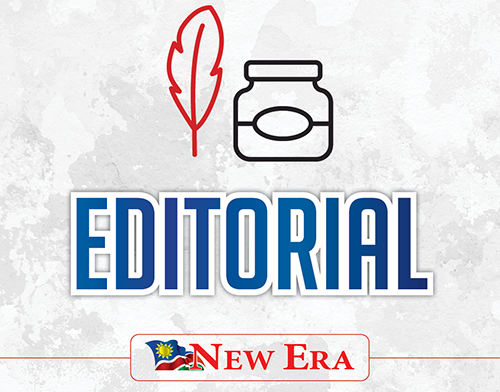The just-concluded general registration of voters process tells a story of change in Namibia’s voter dynamics, necessitating a shift in planning and logistics. It is time to acknowledge it can no longer be business as usual.
The new generation of voters want comfort and avoid ‘inconveniences’, especially when they are not sure if things will work to their advantage.
One cannot dispute that Namibia, especially the Electoral Commission of Namibia (ECN), is working to change the mindset of the ‘unkeen’ potential voters, and to persuade those who have perhaps purposely shunned the elections. The aim is to register the entire population of 1.7 million eligible voters.
But could we have done it better? When things are done and dusted after every election, the ECN knows very well the country is going to hold another election in the next five years – it is a cycle. This means every election is a five-year process. However, it appears the ECN snoozes for four full years before eventually waking up and remembering that another election is due in 12 months. It has been 35 years since the country held its first national democratic elections in 1989. This means that Namibia has held seven Presidential and National Assembly elections thus far. Yet, we continue to treat every election as if it were a new experience. Are we always planning to fail? Is taxpayers’ money and the time of both the ECN and voters being spent effectively?
It is time to re-examine the ECN’s logistics and operations, as millions of dollars are unnecessarily being spent on exercises that could potentially be eliminated, while simultaneously making the process smoother and more user-friendly.
For starters, the millions of dollars pumped into acquiring vehicles used during the registration process is not necessary. There are better ways to handle this process. Voter registration is something that can be carried out continuously.
The ECN could contract staff whose main task would be the continuous voter registration, or place the responsibility of voter education and registration with every constituency or local authority offices in the country, allowing voters to register at their convenience.
Residents who pay their water bill can also make a turn at the voters’ office to register or amend their personal details like a new address.
Another option is to simply equip administrative clerks at constituency offices with voter registration knowledge, and allow them to carry out the registration process. Some of these clerks, after all, spend most of their mornings sunbathing and chit-chatting with friends.
Can we blame them? Let us give them work, let them register two or three voters a day. We could significantly increase the number of registered voters.
Additionally, responsibilities for voter education and outreach could be added to constituency offices. We could also include the registration of birth certificates at constituency offices, eliminating the ongoing and unnecessary issue of statelessness of some of our citizens.
Finally, as a country, we need to listen to each other, and scrutinise each other’s opinions.
Affirmative Repositioning leader Job Amupanda recently suggested that Namibia could do away with voter cards, and instead use identity documents. This is a valid point considering that every eligible voter should possess an ID document. Perhaps voter cards should only be given to those who, for some reason, cannot acquire identity documents.
With smart IDs that Government wants to roll out to more Namibians, there would only be a need for a verification process to ensure the ID is valid, and that the person is eligible to vote in that constituency.
These suggestions would significantly reduce costs related to setting up registration points, transportation, security, voter education campaigns and other unnecessary logistics.



